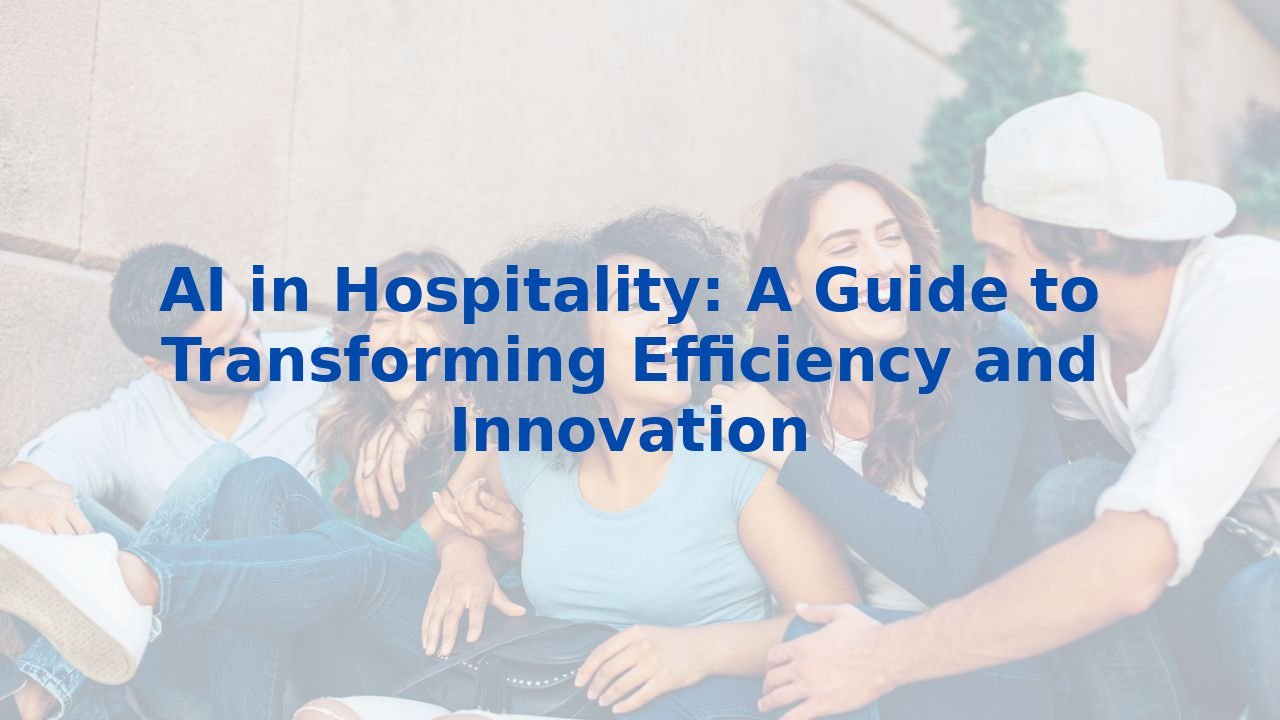AI in Hospitality: A Guide to Transforming Efficiency and Innovation
AI in Hospitality: A Guide to Transforming Efficiency and Innovation
The hospitality industry is no stranger to change, but the latest wave of transformation brought on by Artificial Intelligence (AI) is nothing short of revolutionary. Gone are the days when manual processes were the norm; organizations now have the power to integrate AI to reshape their business strategies. This blog post will explore how AI can enhance key business processes in hospitality, delivering unparalleled efficiency and driving innovation.
Automating Routine Tasks
At the core of operational efficiency lies the ability to automate routine tasks. In hospitality, day-to-day functions such as data entry, invoice processing, and appointment scheduling often consume precious time and human resources. Implementing AI technologies allows organizations to streamline these monotonous activities through intelligent bots and software. As repetitive tasks are automated, employees can redirect their focus towards strategic and customer-centric initiatives that foster growth and enhance guest satisfaction.
Process Optimization
AI goes beyond simple automation; it offers profound insights for process optimization. By analyzing existing workflows, AI can identify bottlenecks and inefficiencies that hinder productivity. For example, in the intricate world of hospitality, an AI-driven system can optimize supply chain management by anticipating demand fluctuations, managing inventory levels, and recommending efficient shipping routes. Such optimizations allow organizations to make data-informed decisions, ensuring that resources are deployed where they're needed most.
Quality Control and Assurance
When it comes to the hospitality experience, quality is paramount. AI brings a new level of rigor to quality control by offering real-time monitoring of service operations and resources. By quickly detecting any irregularities, AI ensures that guests receive the top-notch service they expect and deserve. The result? A substantial reduction in waste and improved brand reputation, which are critical in a competitive market.
Risk Management
Every business faces challenges, and hospitality is no different. AI’s data analysis capabilities give organizations a comprehensive view of potential risks and opportunities. By analyzing vast datasets, AI can identify emerging trends and assess market volatility, allowing businesses to adapt proactively. This data-driven decision-making leads to greater agility, helping organizations mitigate risks while capitalizing on new avenues for growth.
Enhancing Employee Training and Productivity
With the advent of AI, employee training is being redefined. Traditional training sessions often fall short in engagement and effectiveness. Enter AI-driven learning platforms, which create a dynamic training environment tailored to individual learning styles. By focusing on real-time assistance and knowledge retention, these platforms can significantly enhance employee productivity and problem-solving capabilities. Bridging the skills gap among staff not only fosters an empowered workforce but also elevates team performance across the board.
Fraud Detection
In the hospitality sector, maintaining secure transactions is crucial. AI shines in this area by employing pattern recognition techniques to monitor transaction data and user behavior. By identifying anomalies and potential threats, AI systems can facilitate swift action to protect sensitive information and company assets. This proactive approach to security allows organizations to operate with greater confidence, enhancing customer trust.
The Importance of AI Training
However, to fully harness the advantages of AI, effective employee training is essential. Beyond technical training, it’s paramount that staff understand how to collaborate seamlessly with AI systems. Training programs should provide employees with the skills required for data analysis, pattern recognition, and informed decision-making. Facing this challenge head-on empowers organizations to navigate the AI landscape effectively, creating a flexible and innovative work environment.
Conclusion
The integration of AI in hospitality is not merely a trend; it symbolizes a paradigm shift in operational efficiency and innovation. By automating tasks, optimizing processes, enhancing quality control, and fortifying risk management, AI is rapidly changing the landscape of the industry. As organizations strive to maintain a competitive edge, embracing AI technologies is no longer an option—it’s a prerequisite for survival and success. By investing in AI training and leveraging its capabilities, businesses will unlock unprecedented levels of productivity and cultivate a work environment primed for innovation.
In a world driven by technological advancements, the hospitality industry stands at the forefront of transformation. The future is here; it’s time to be part of the change.



